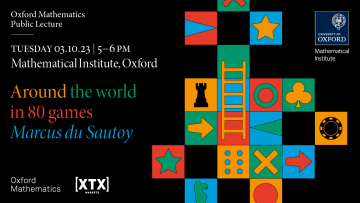Let w(x_1,...,x_r) be a word in a free group. For any group G, w induces a word map w:G^r-->G. For example, the commutator word w=xyx^(-1)y^(-1) induces the commutator map. If G is finite, one can ask what is the probability that w(g_1,...,g_r)=e, for a random tuple (g_1,...,g_r) of elements in G.
In the setting of finite simple groups, Larsen and Shalev showed there exists epsilon(w)>0 (depending only on w), such that the probability that w(g_1,...,g_r)=e is smaller than |G|^(-epsilon(w)), whenever G is large enough (depending on w).
In this talk, I will discuss analogous questions for compact groups, with a focus on the family of unitary groups; For example, given r independent Haar-random n by n unitary matrices A_1,...,A_r, what is the probability that w(A_1,...,A_r) is contained in a small ball around the identity matrix?
Based on a joint work with Nir Avni and Michael Larsen.



